
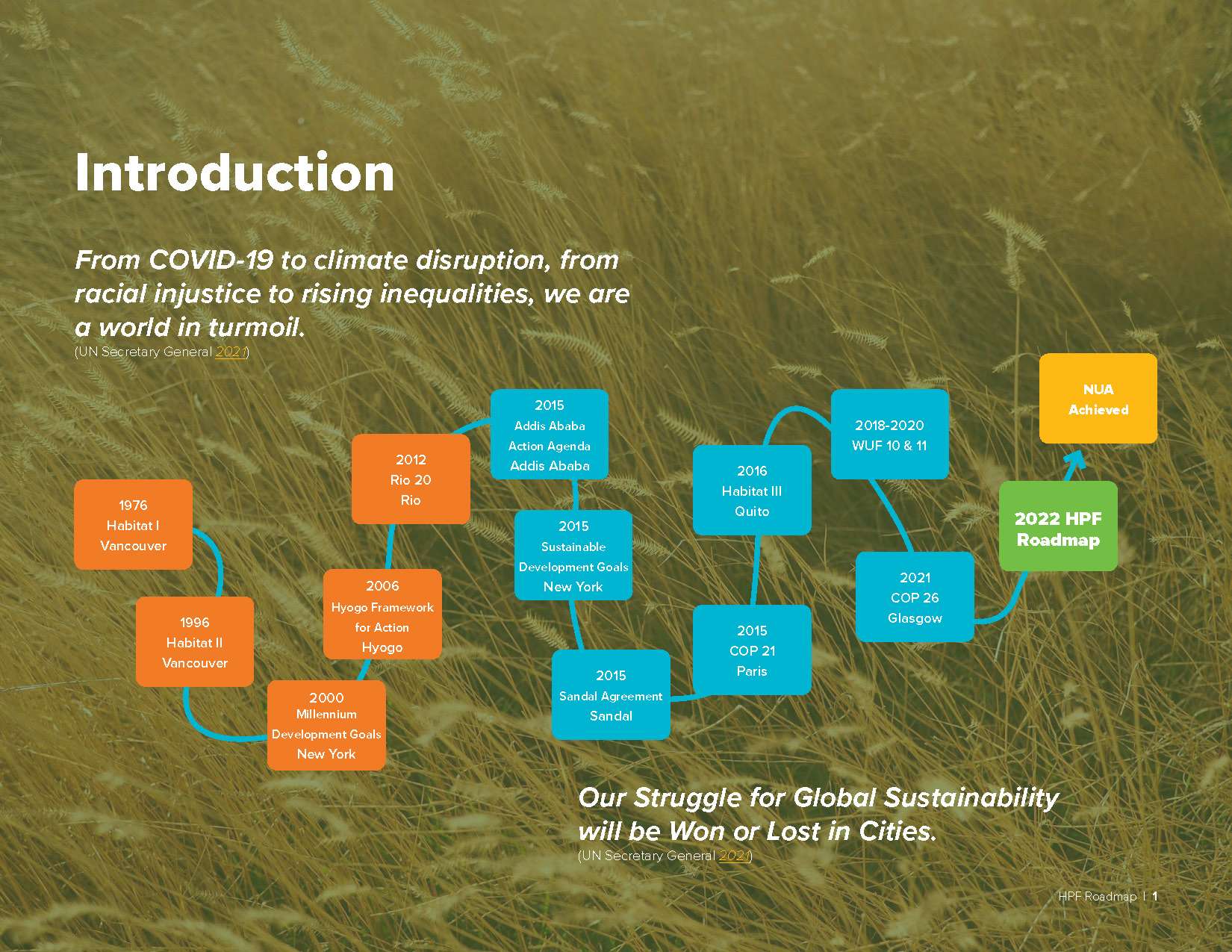
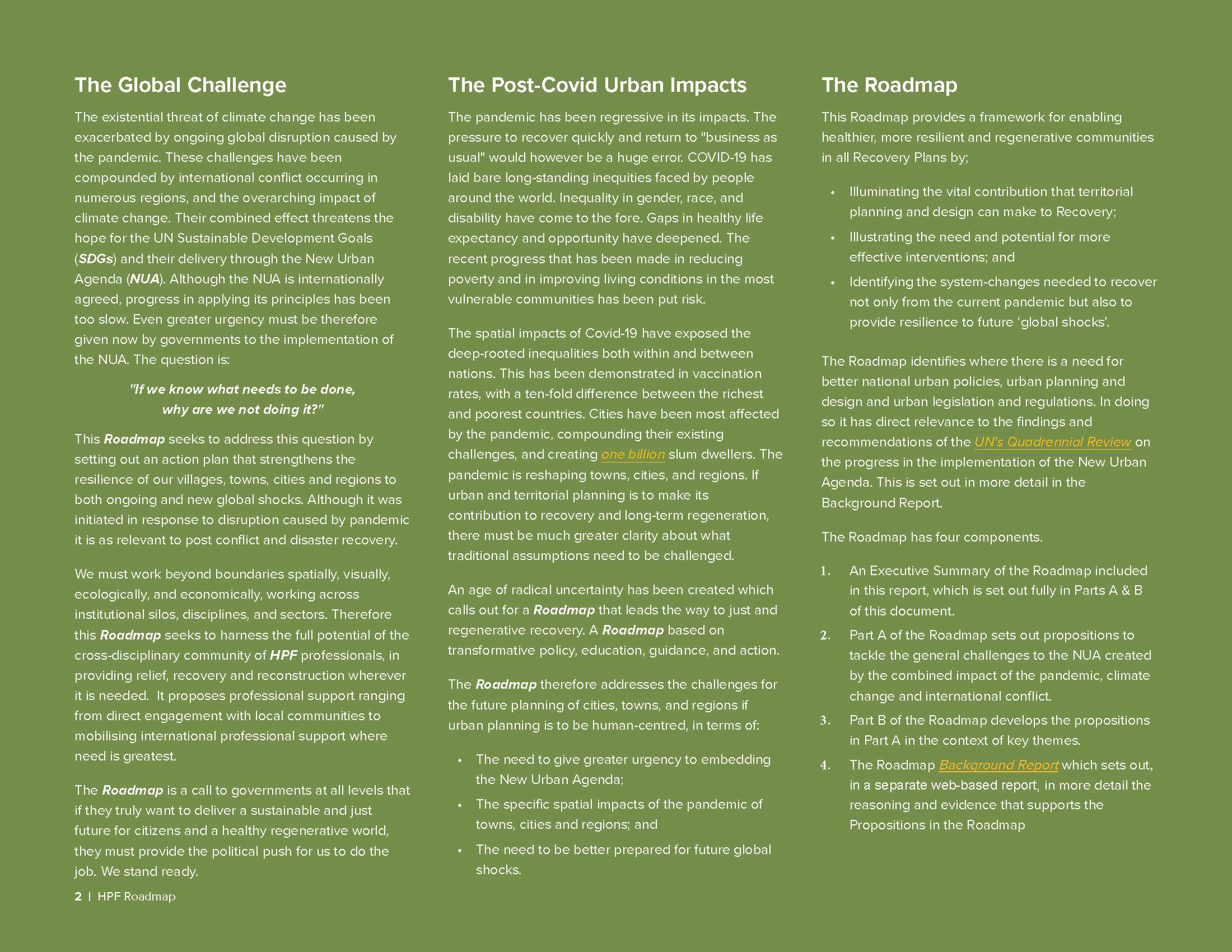
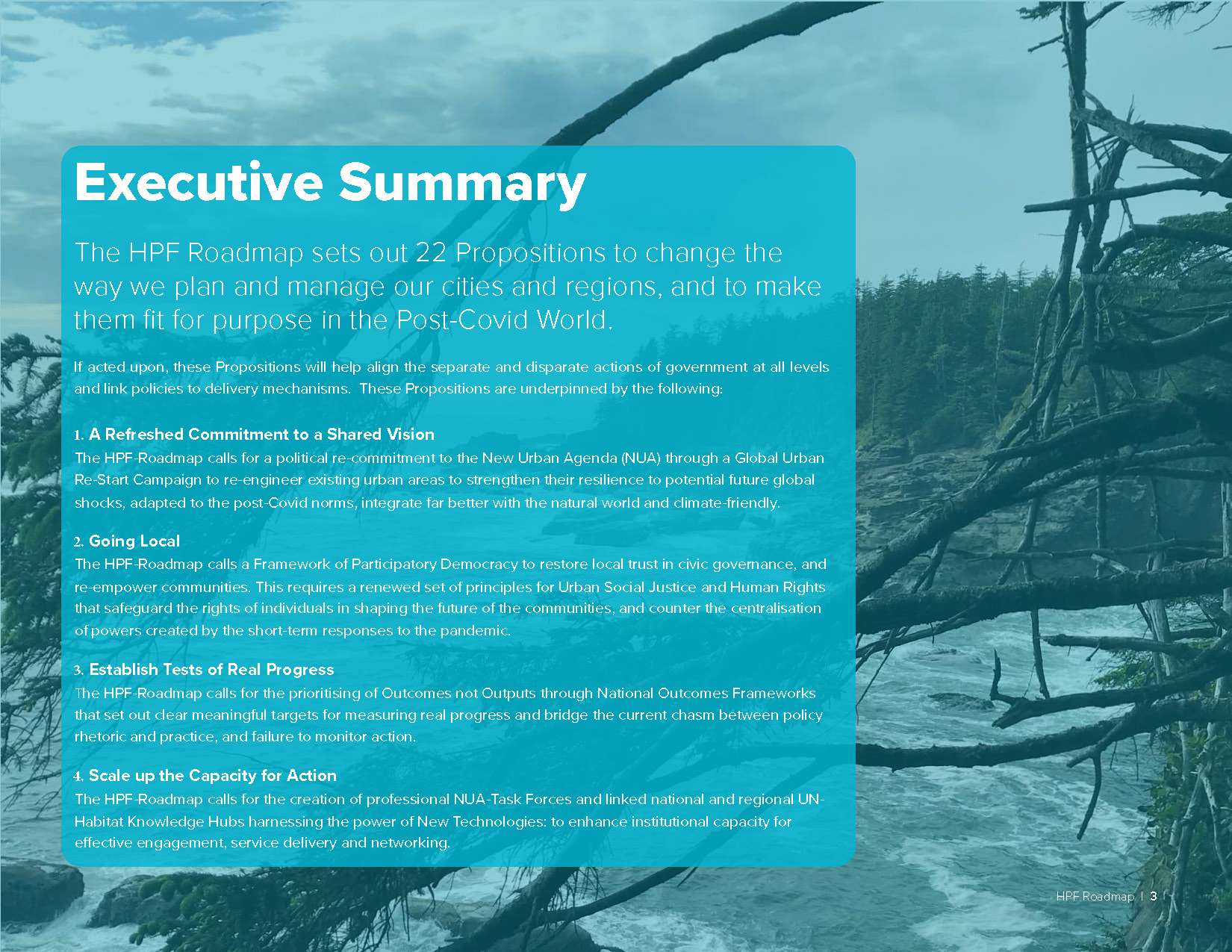
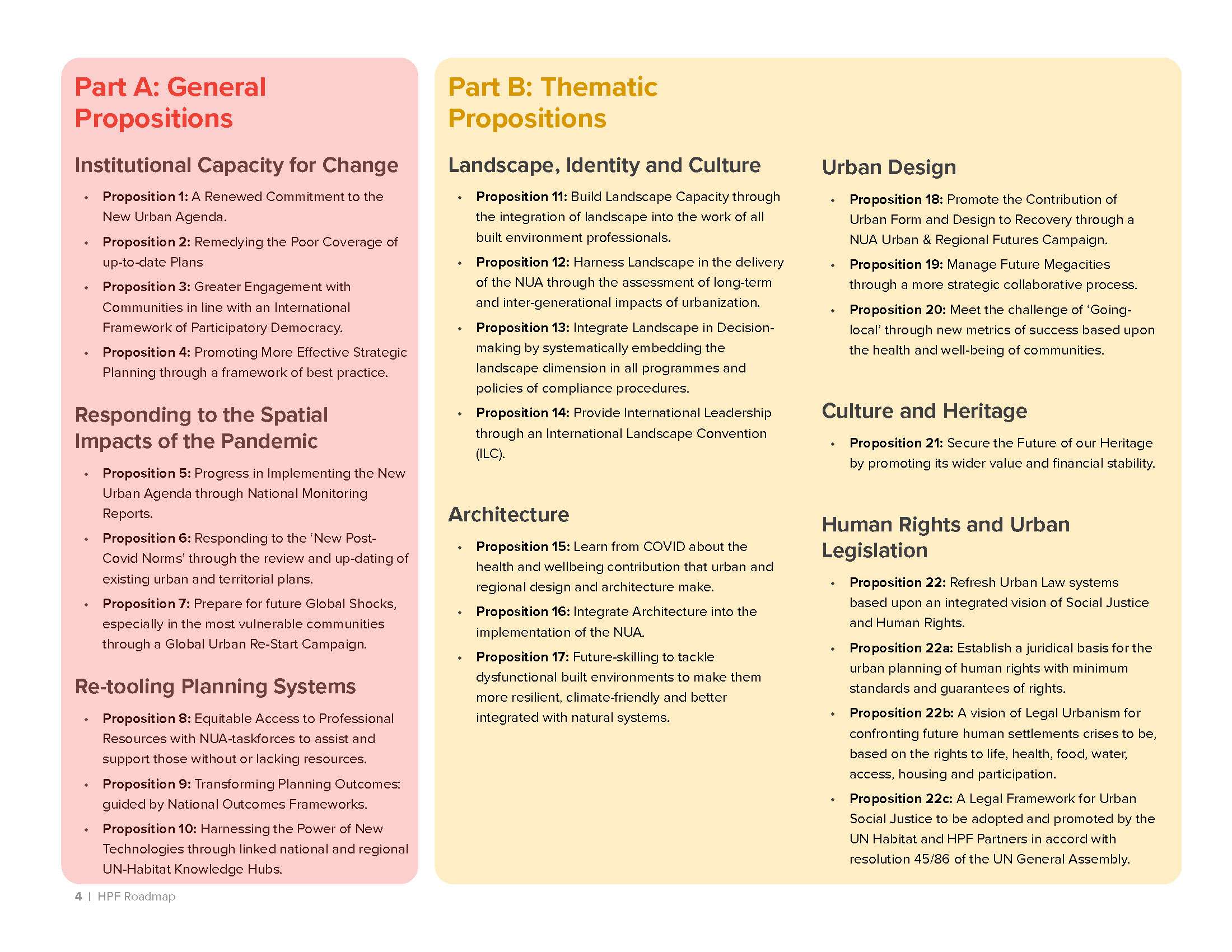
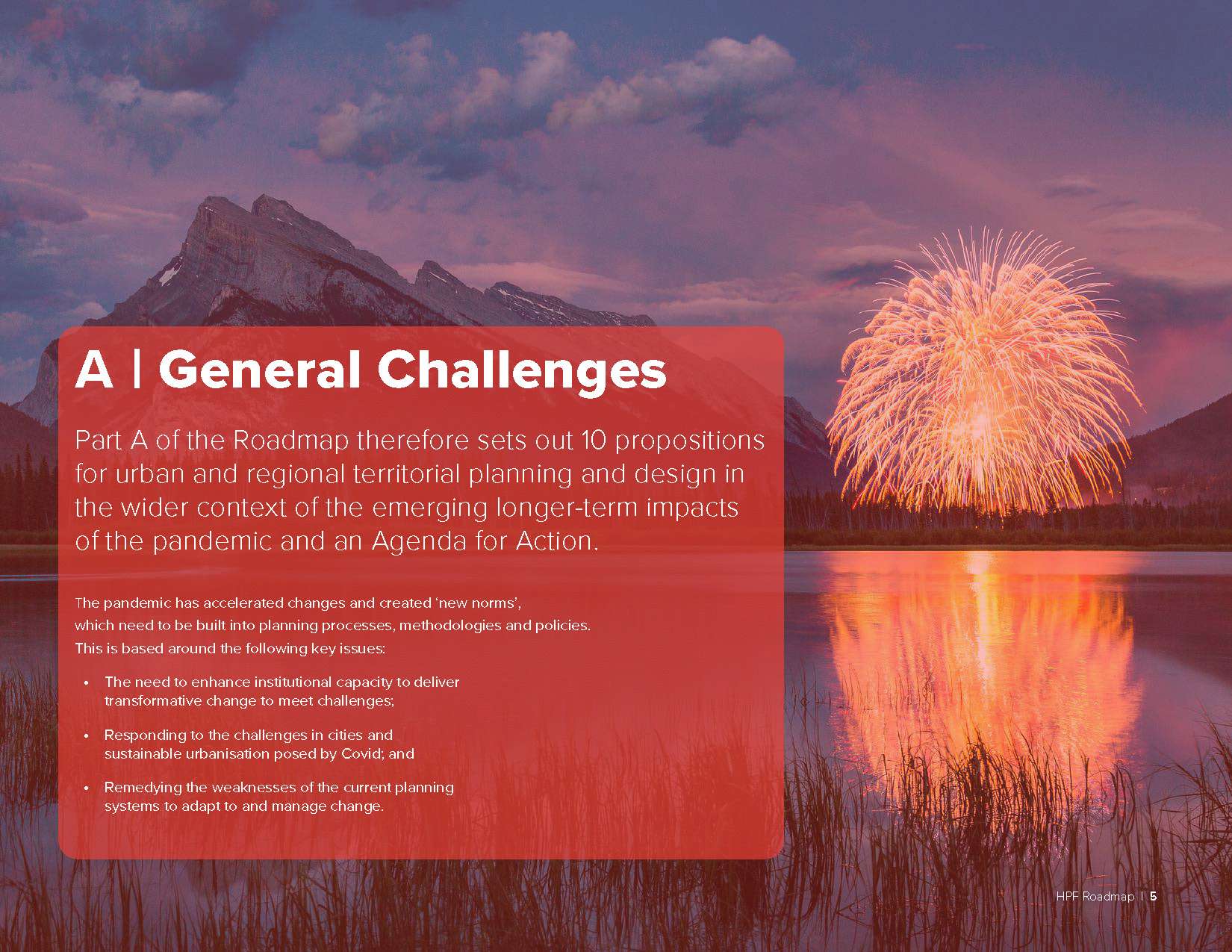
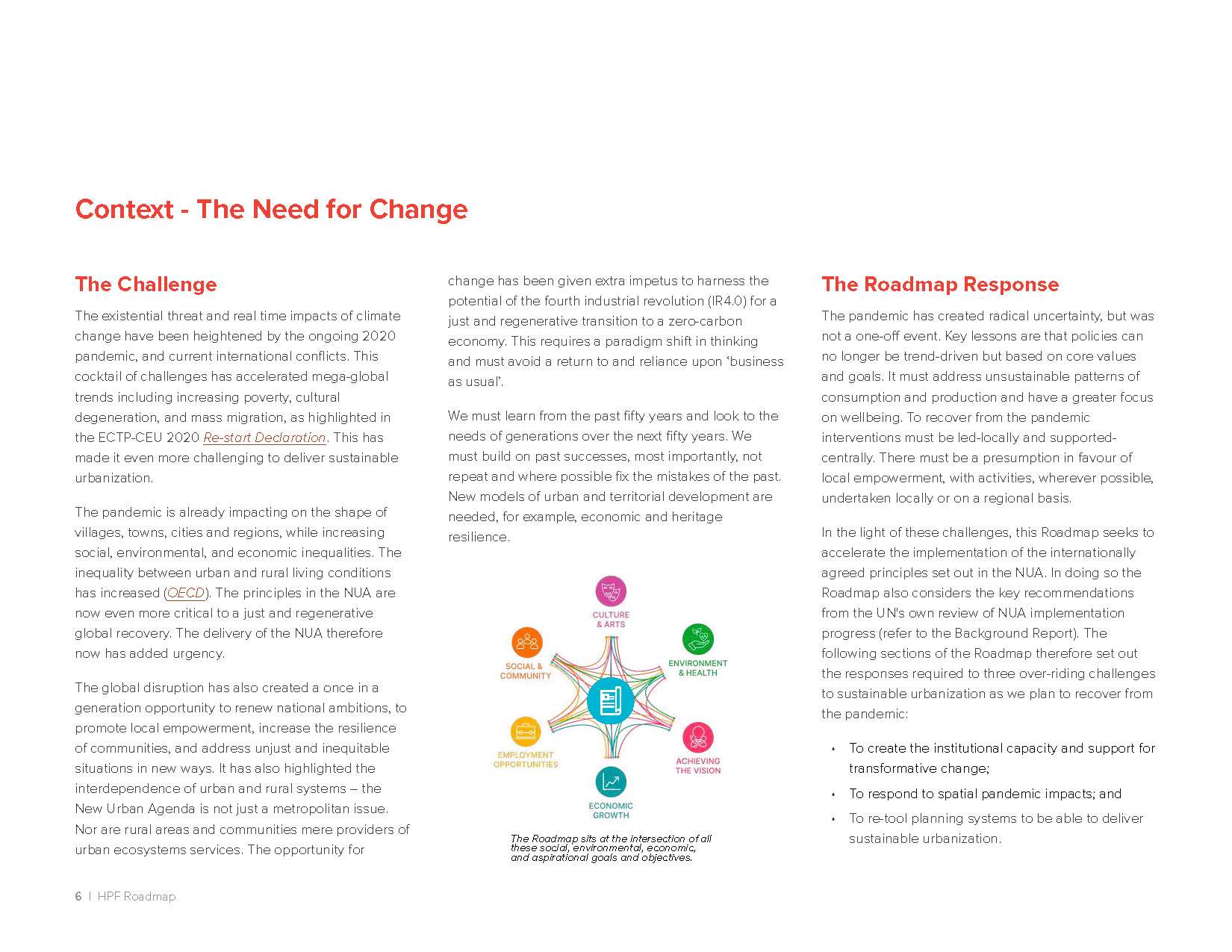
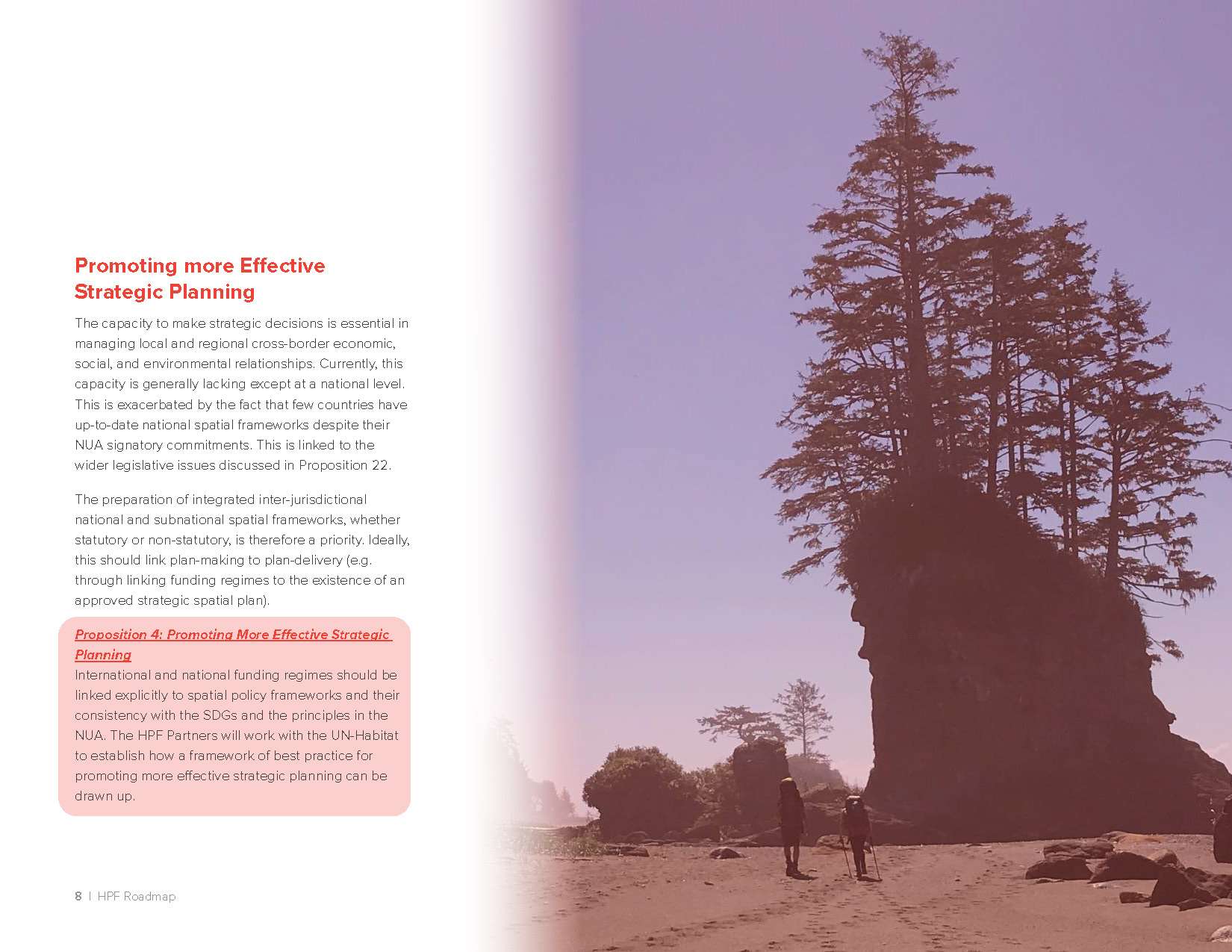
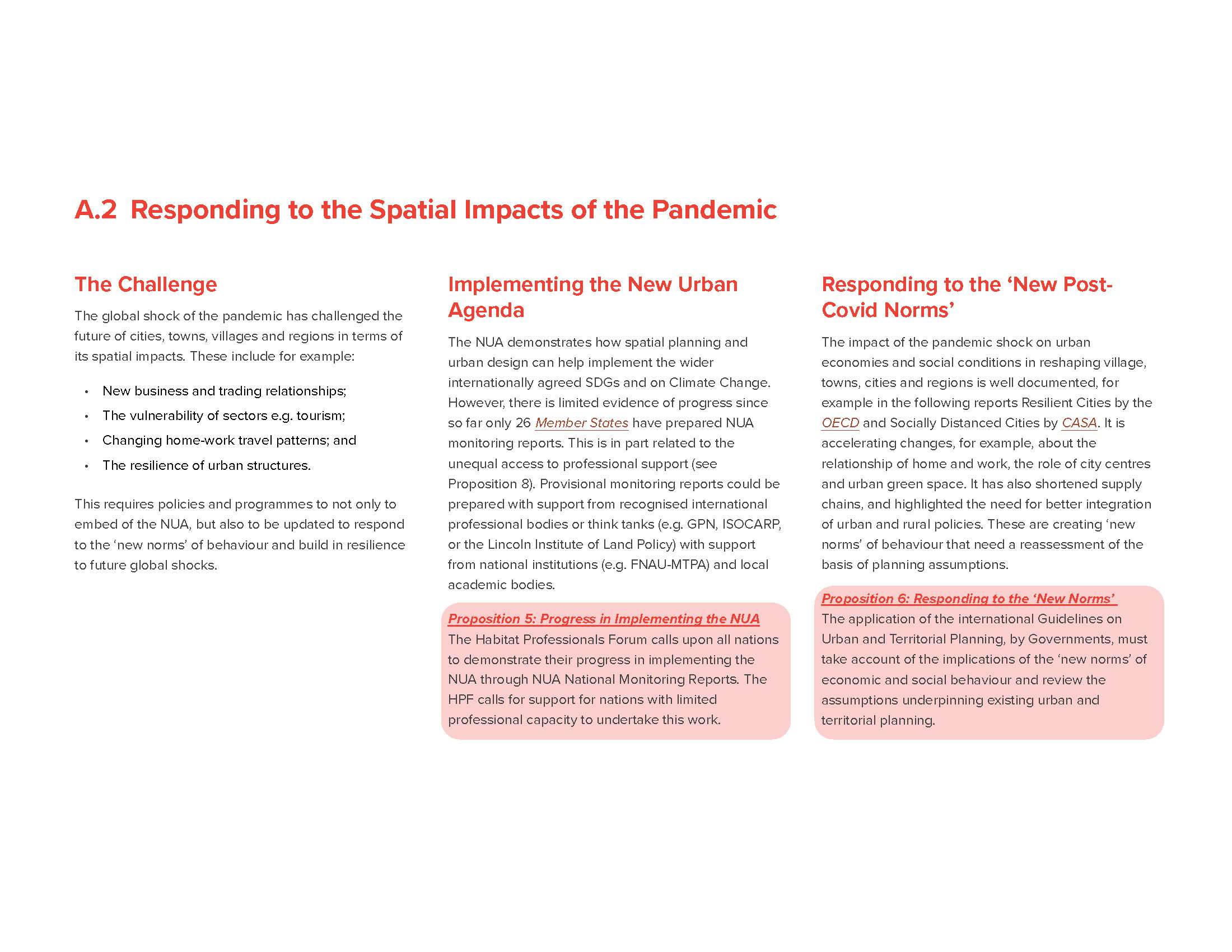
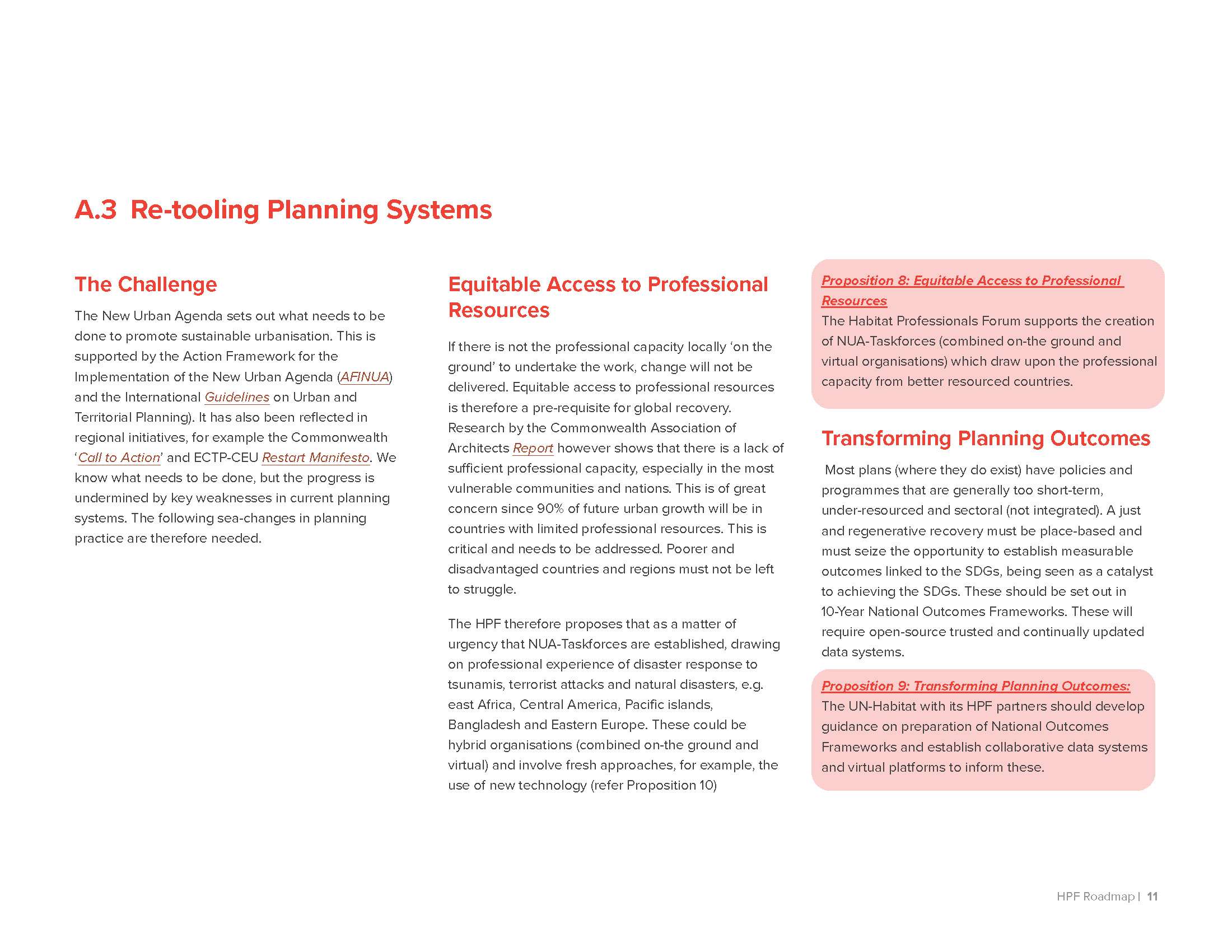
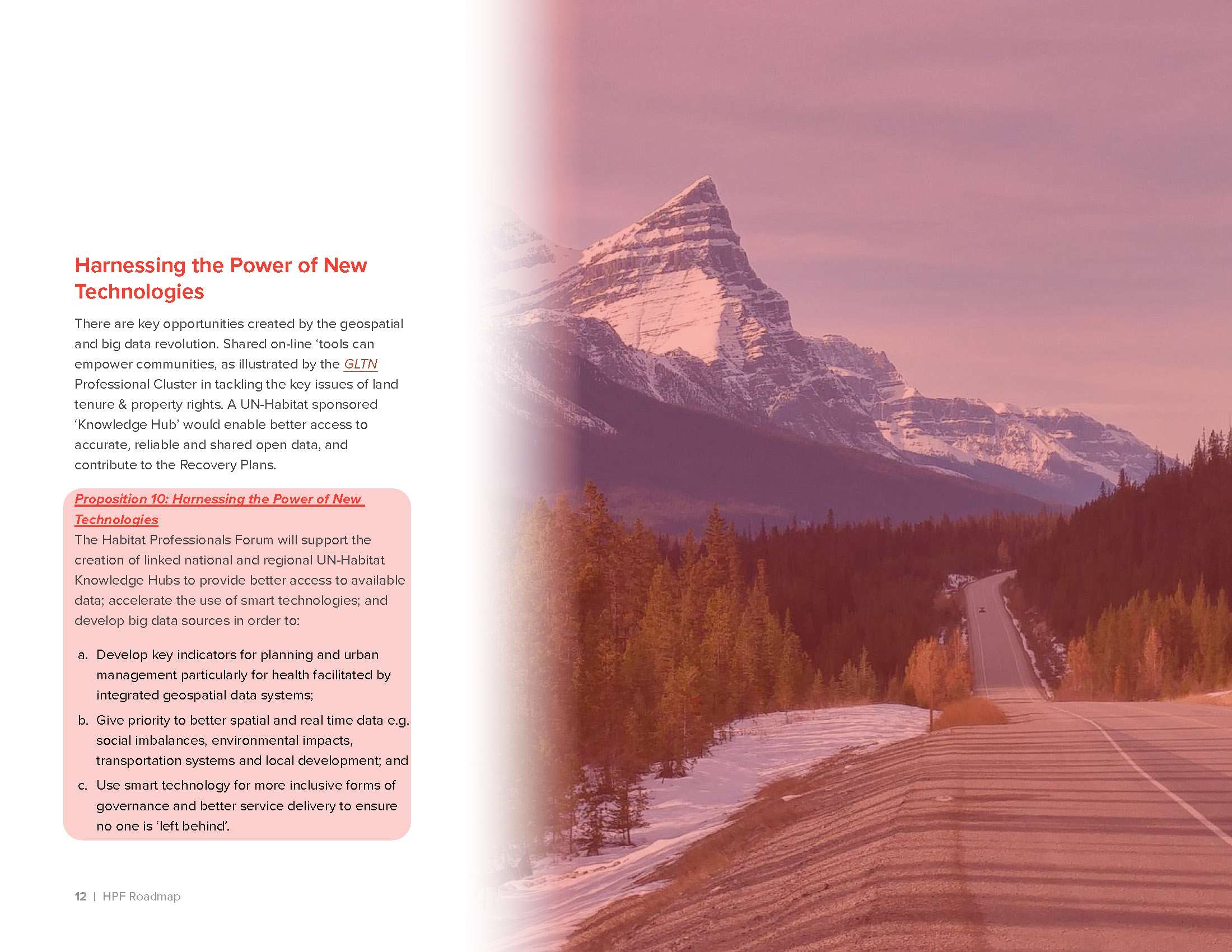
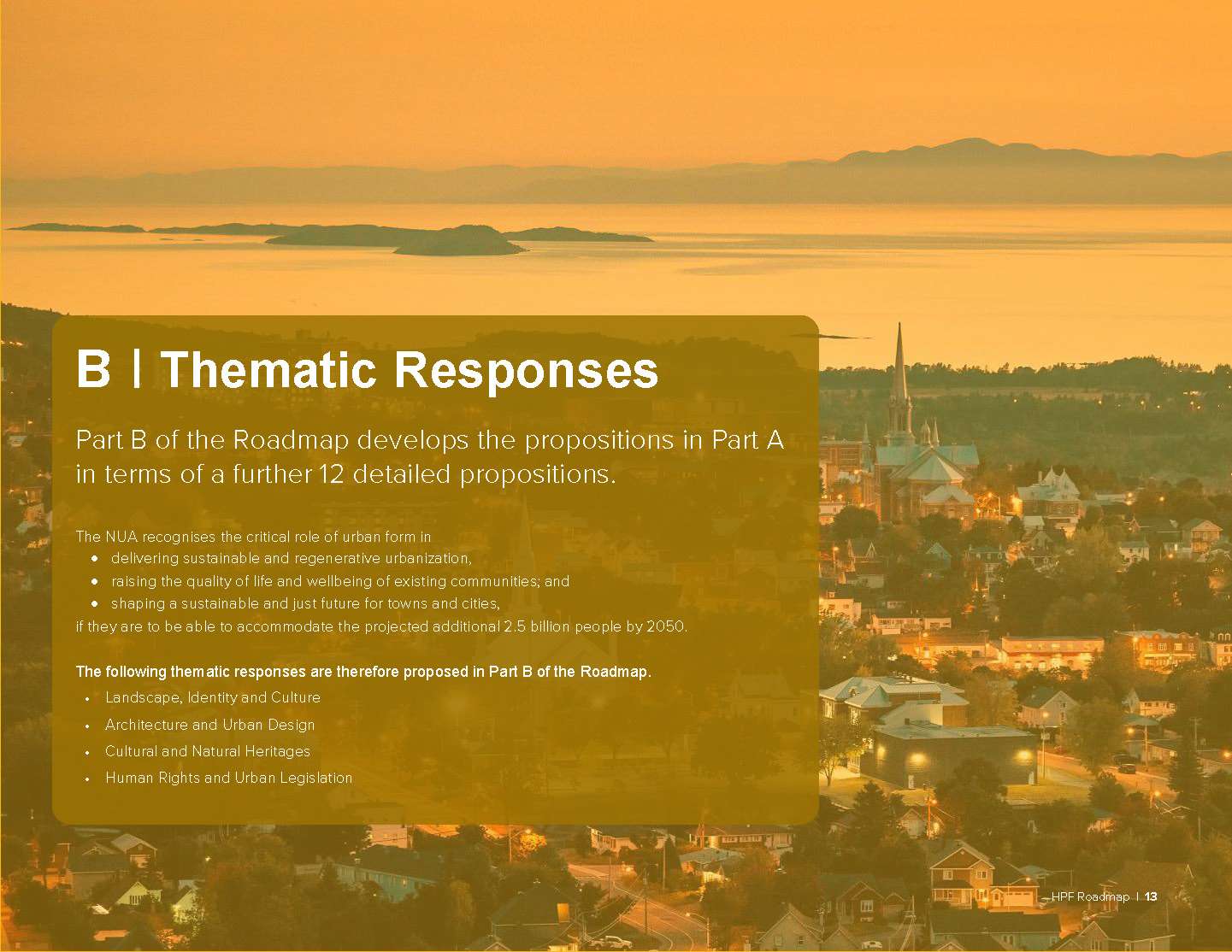
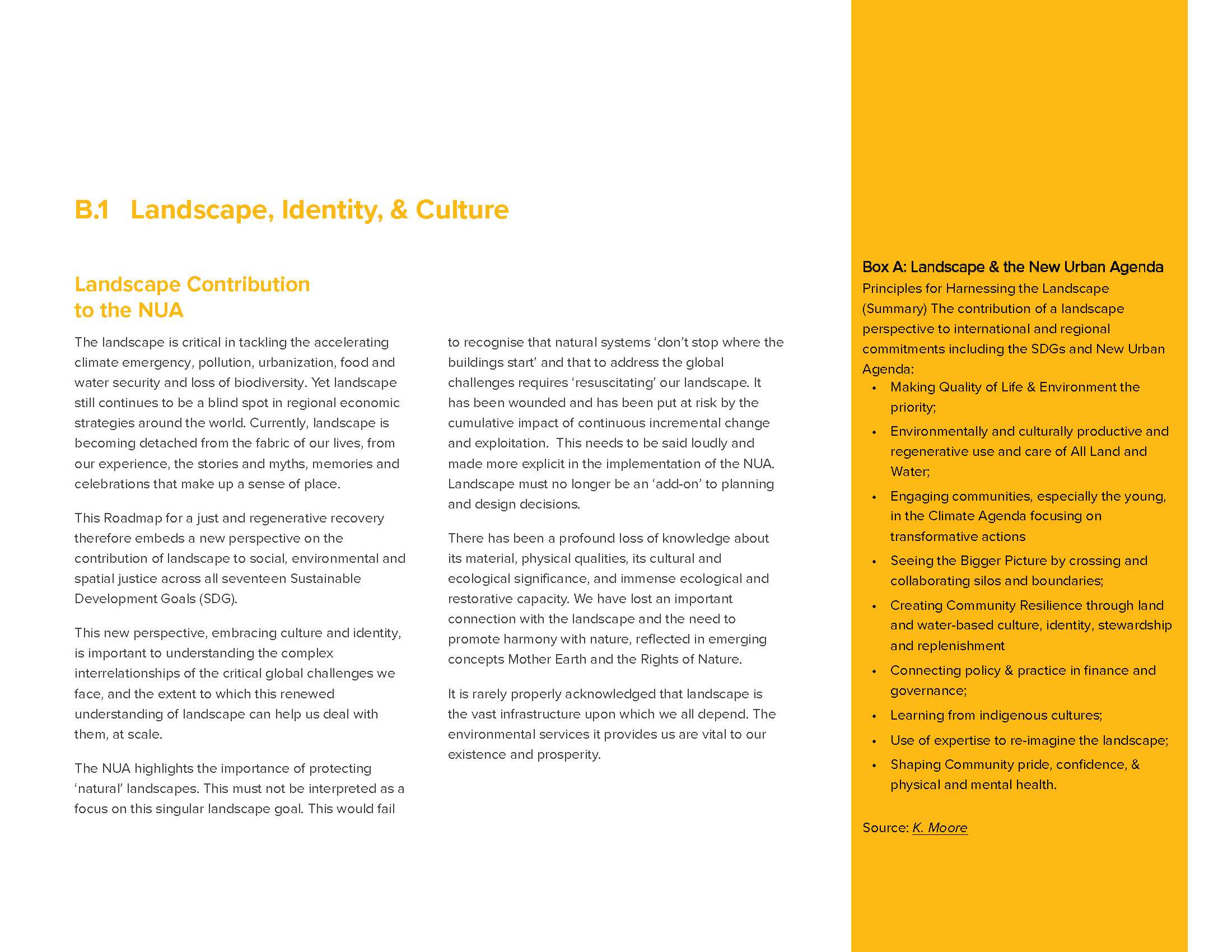
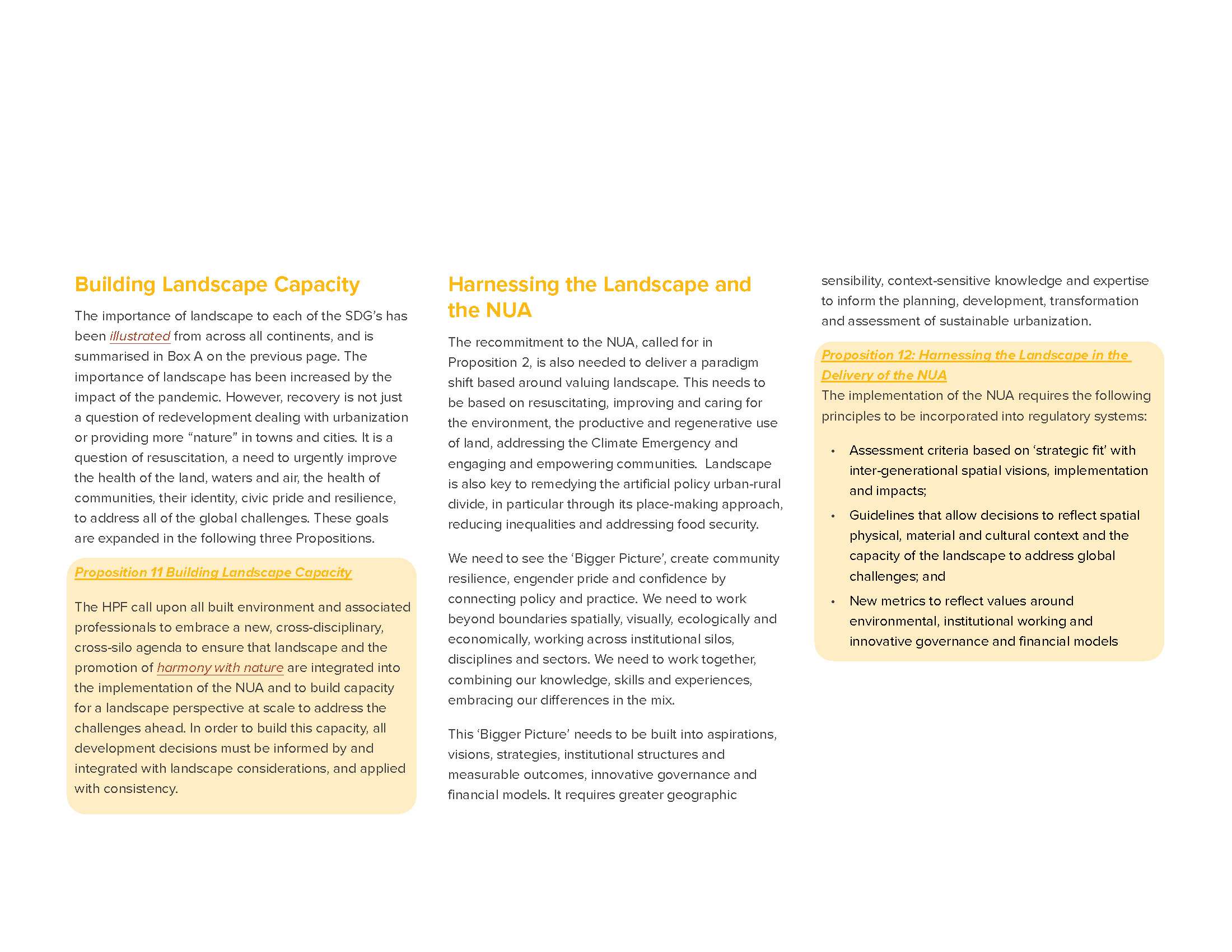
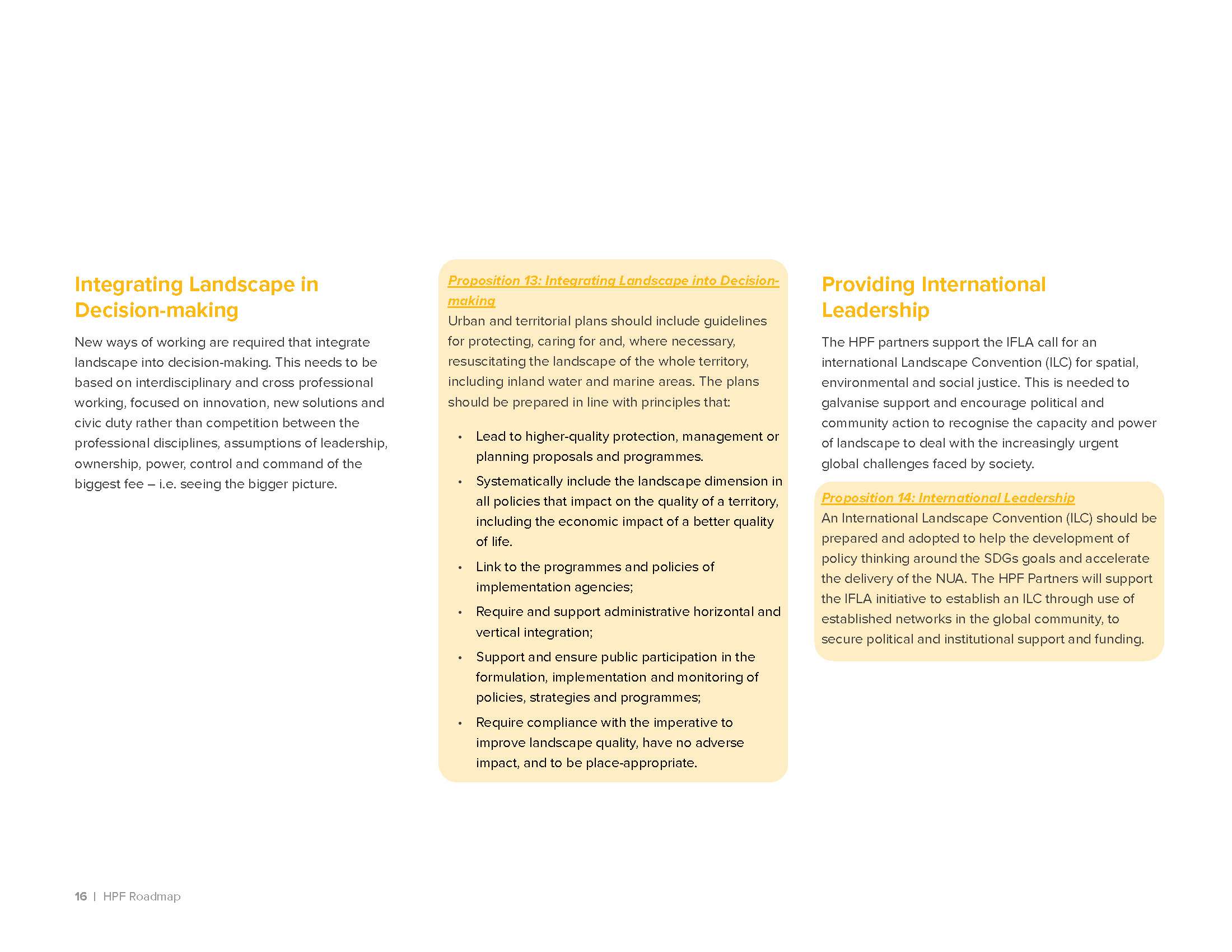
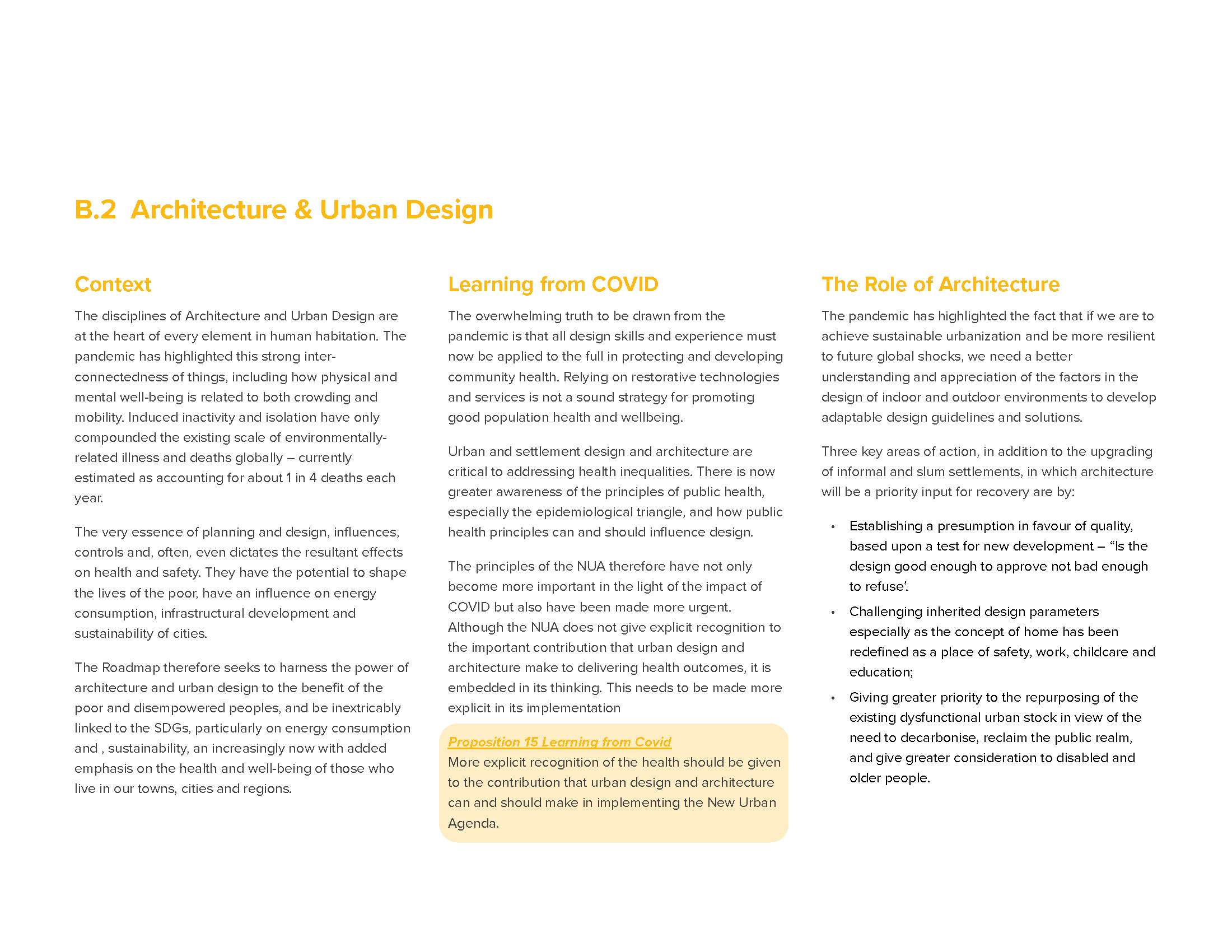
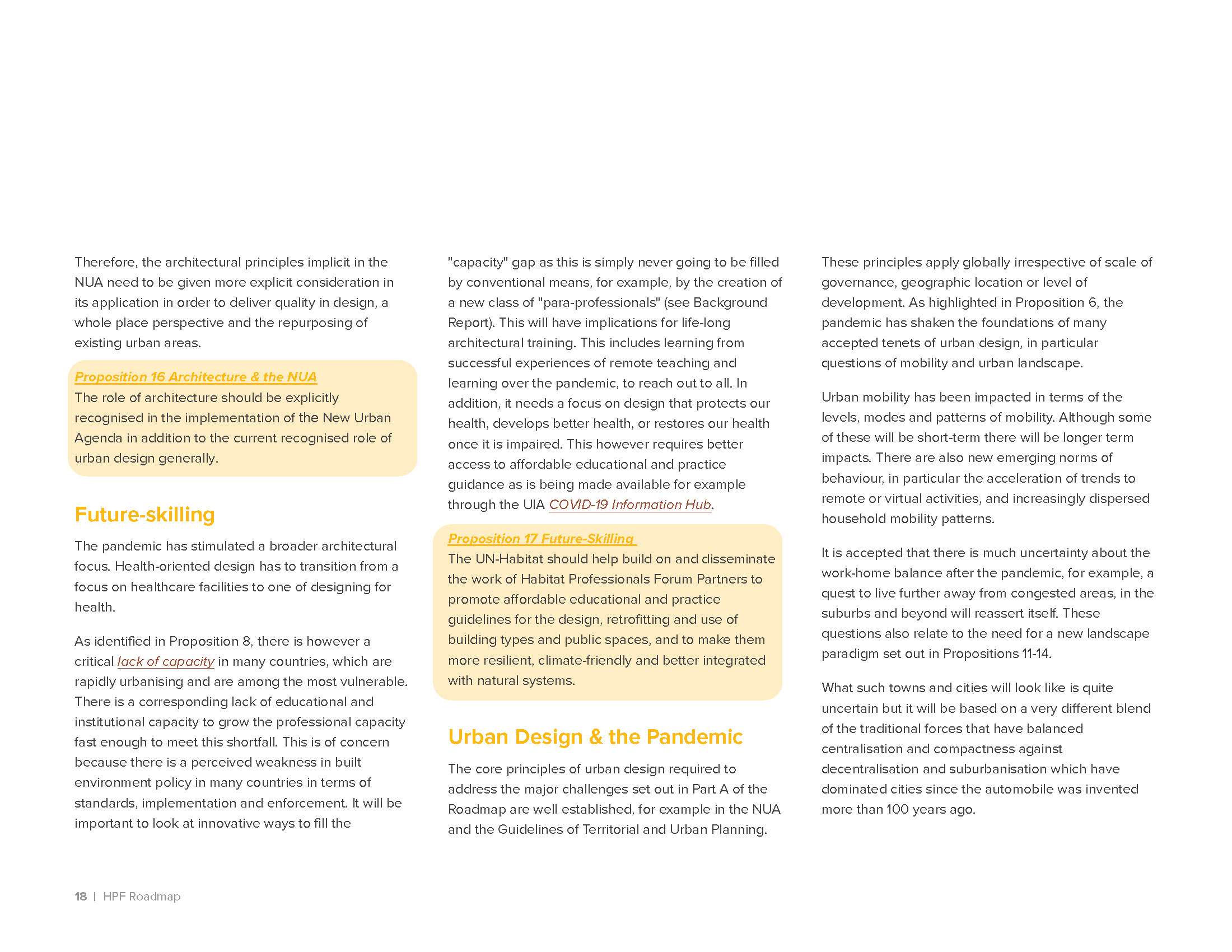
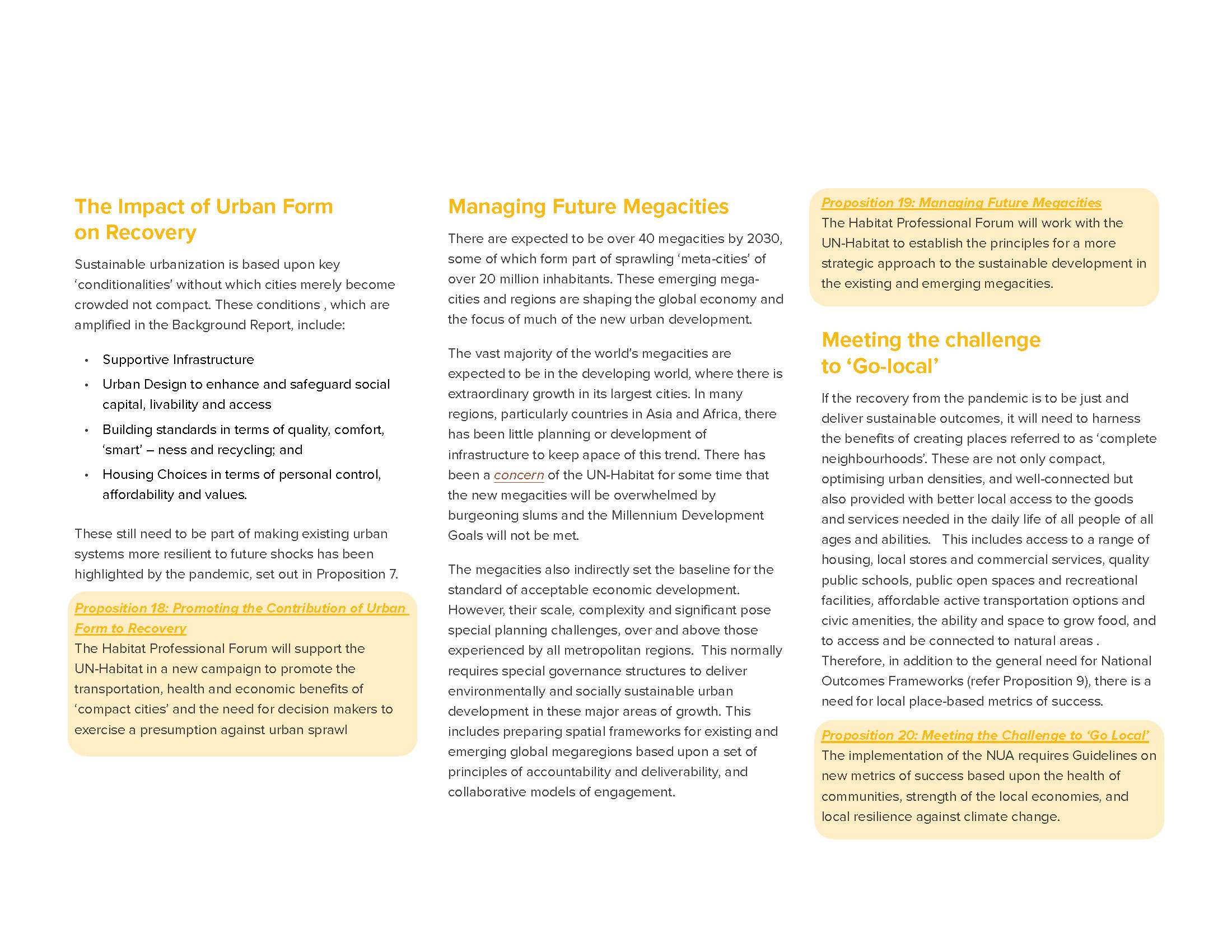
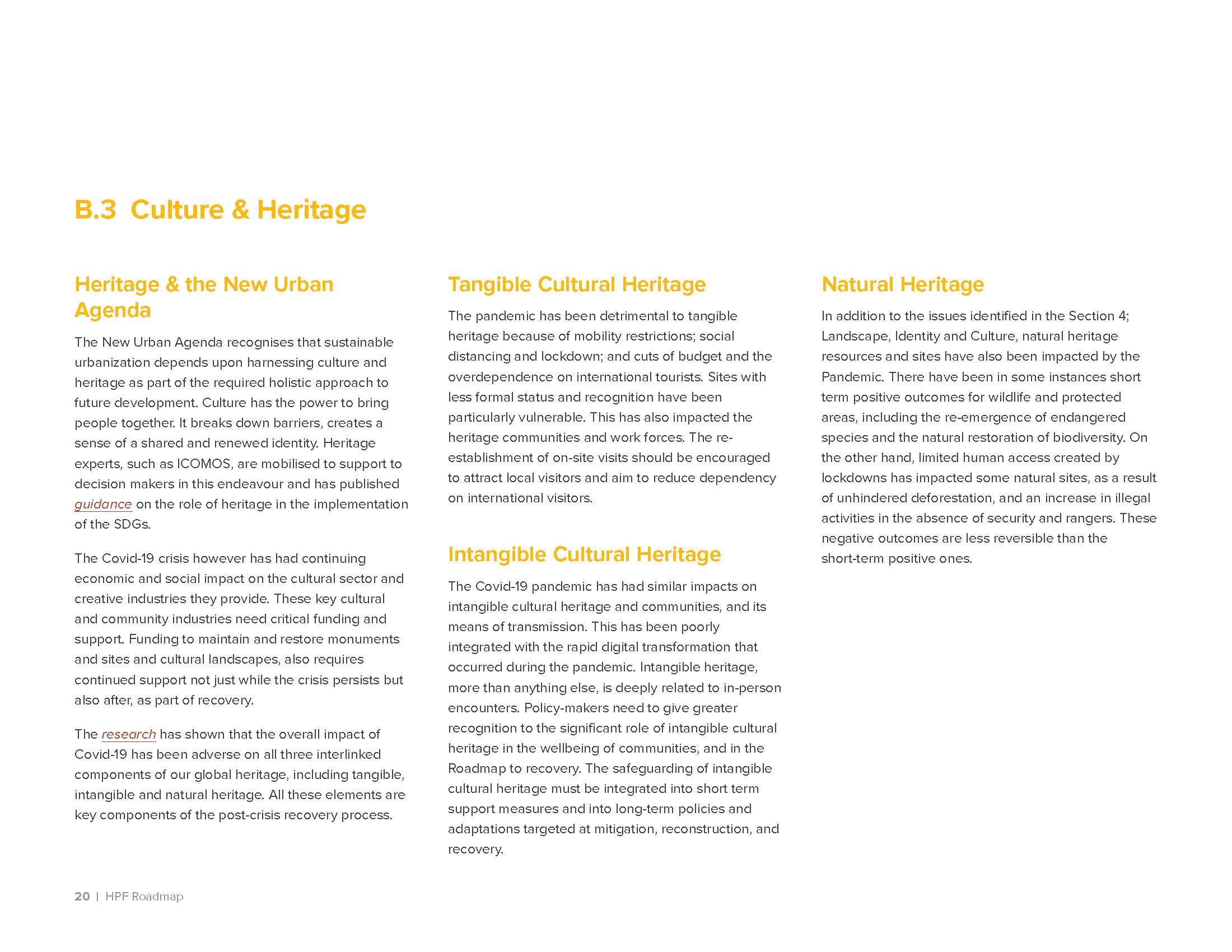
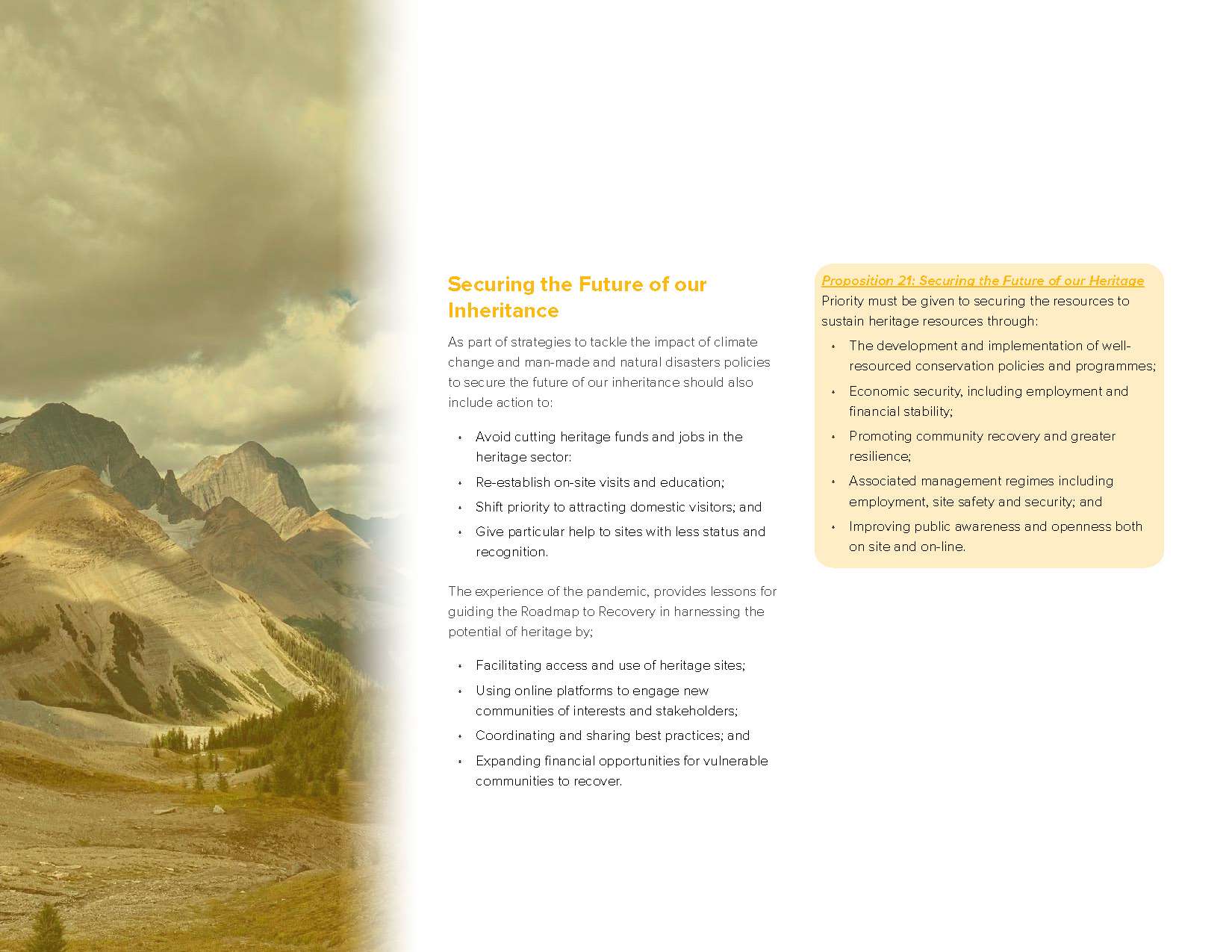
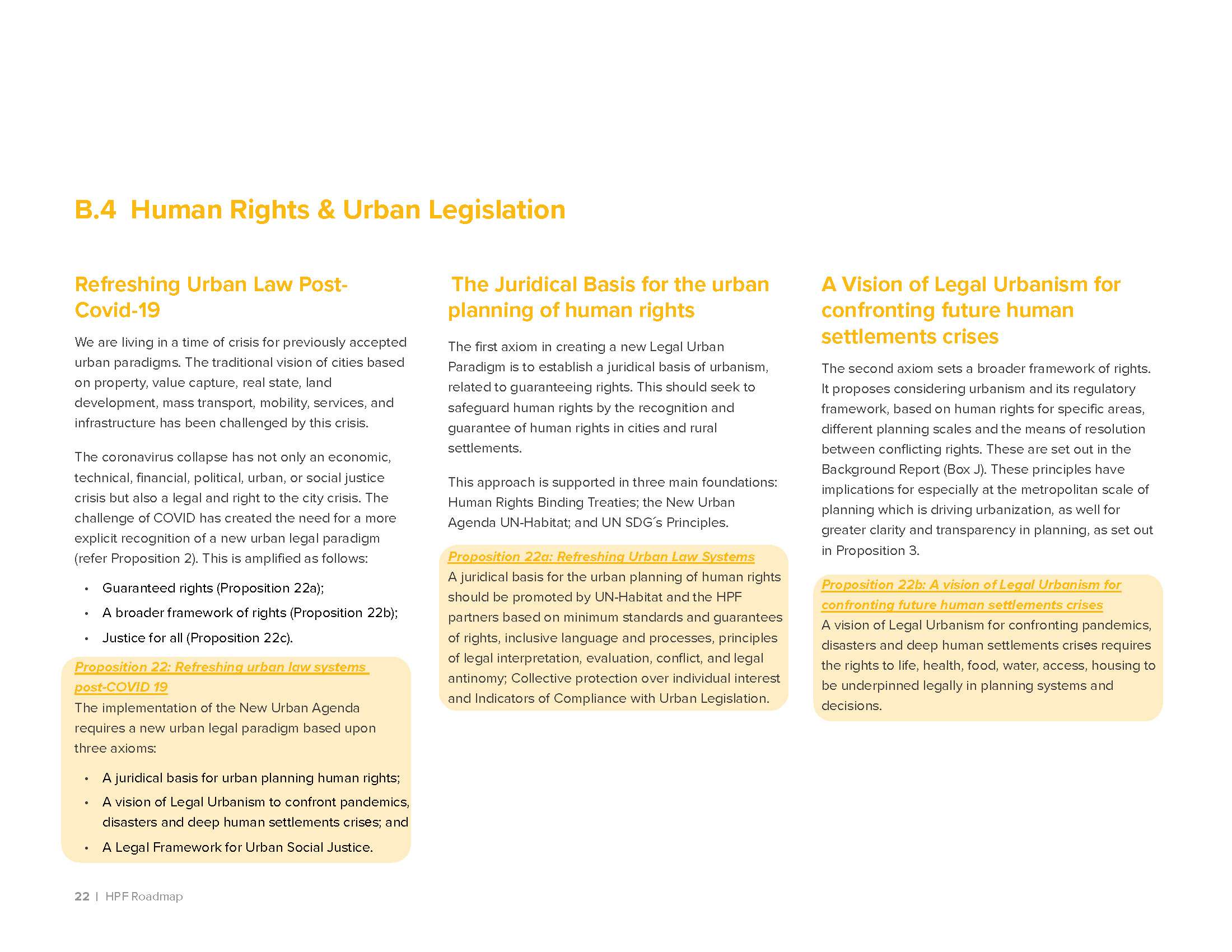
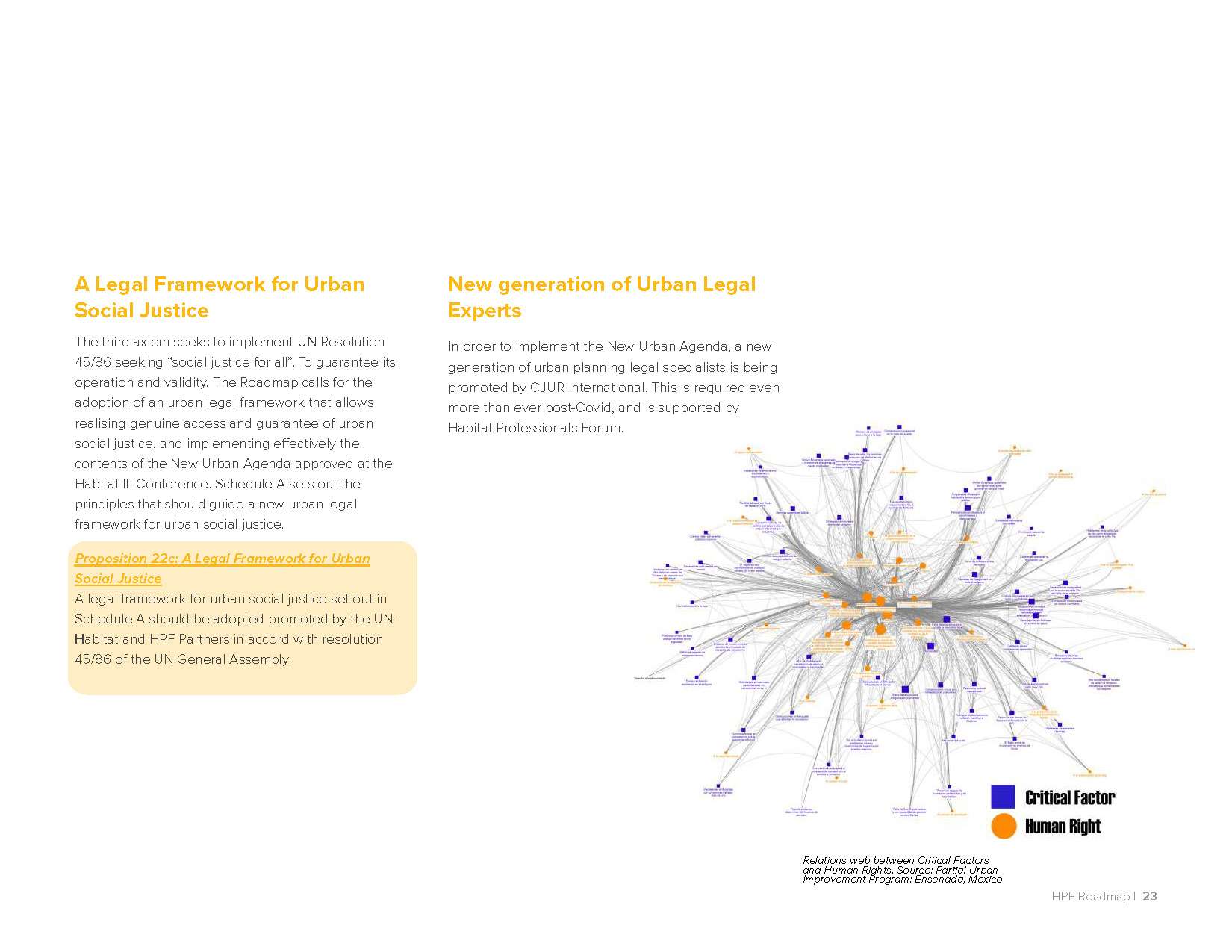
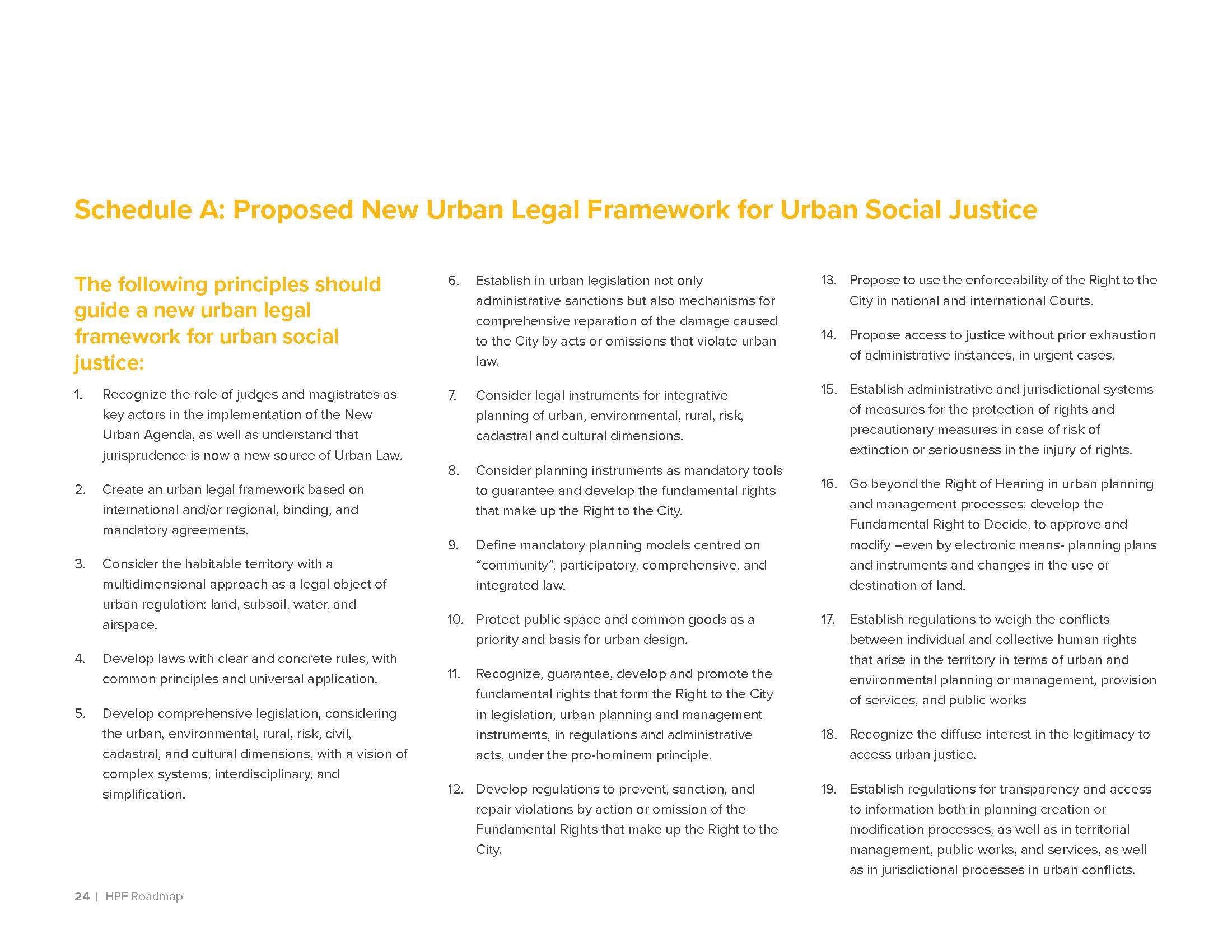
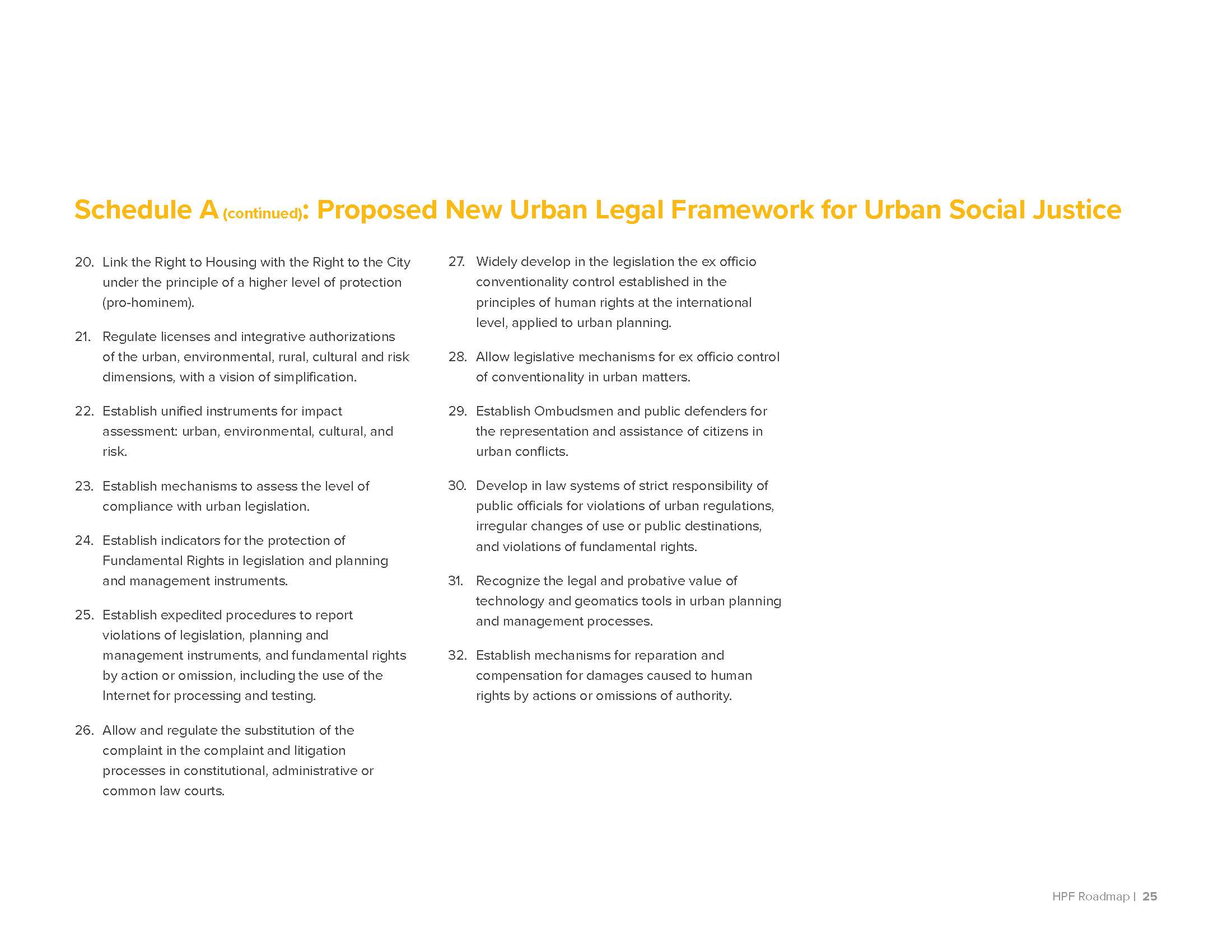
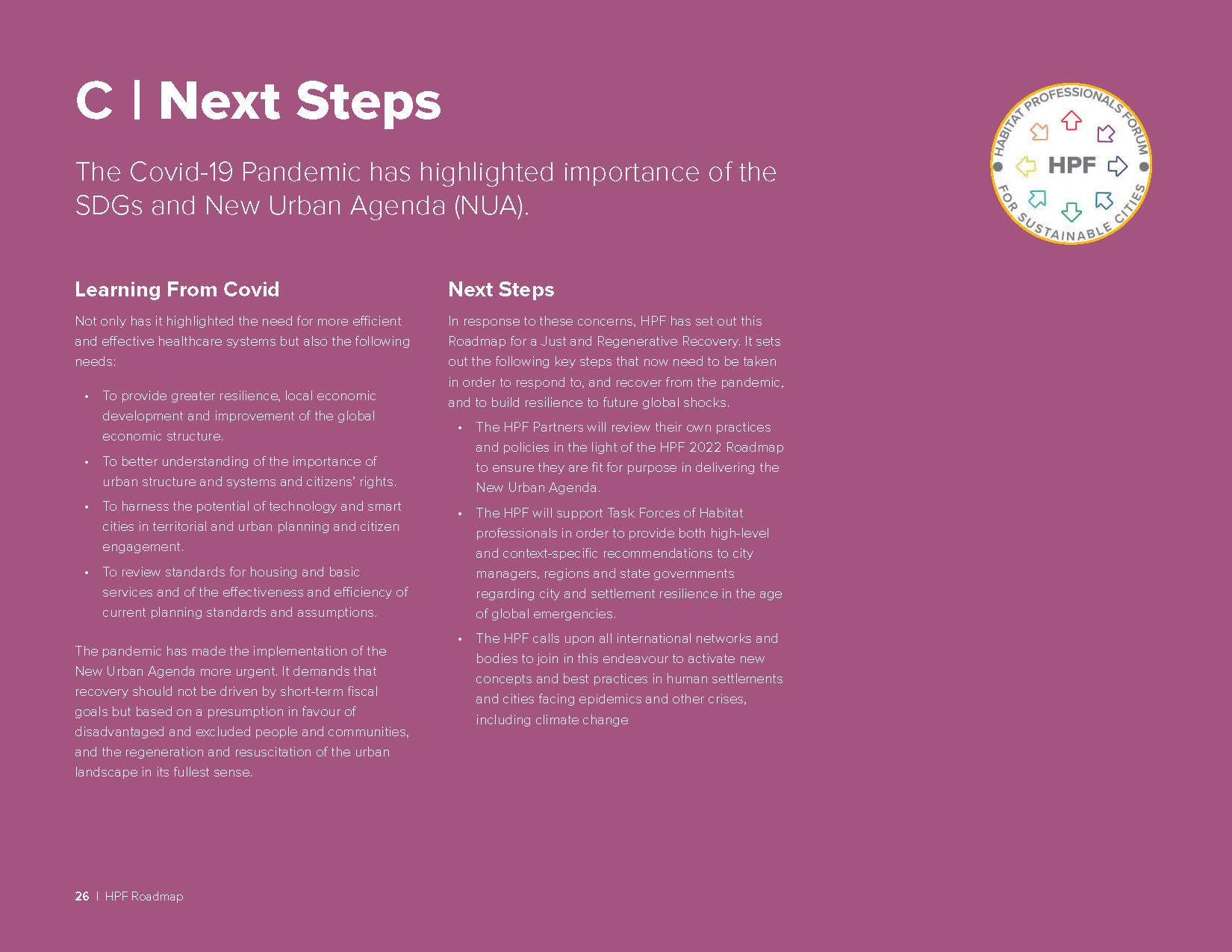
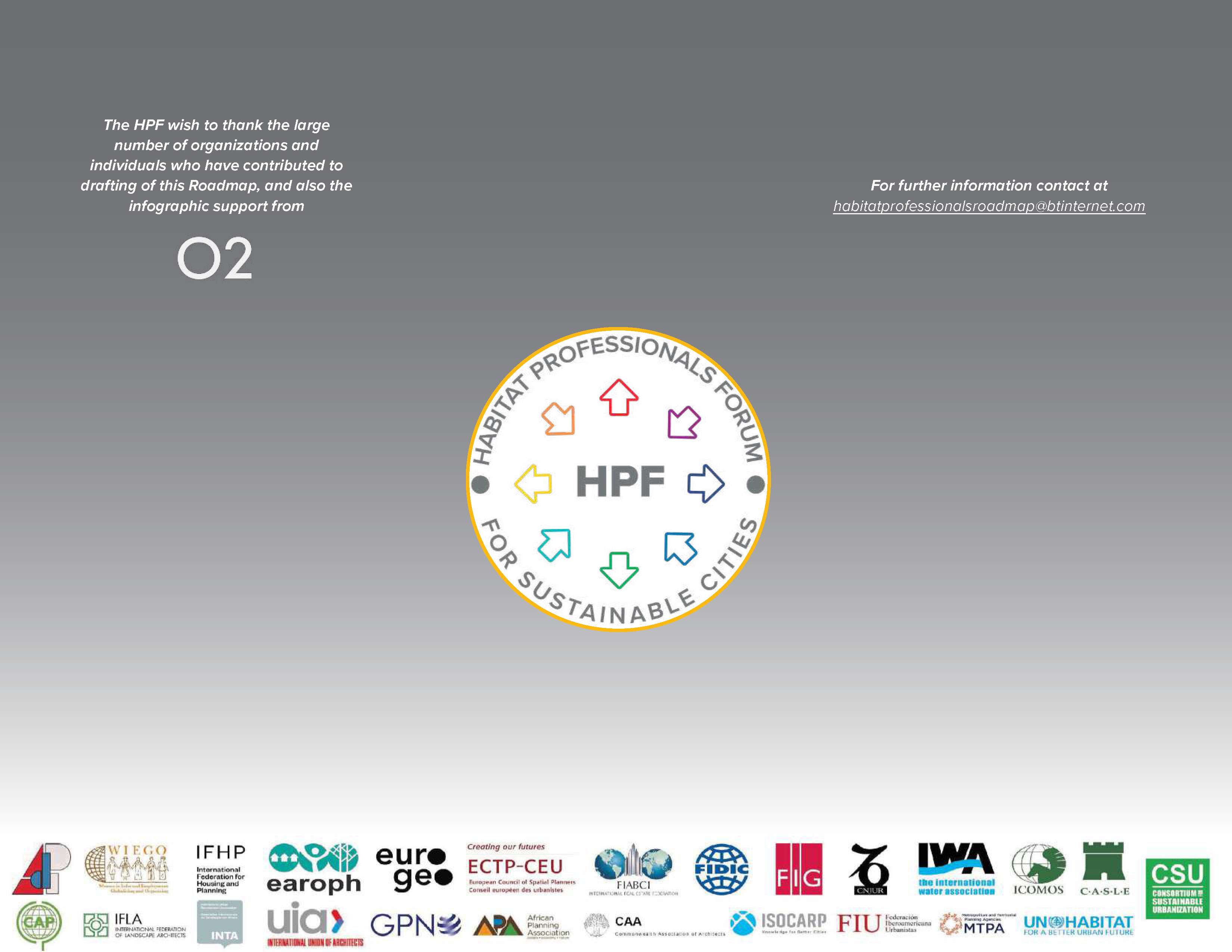
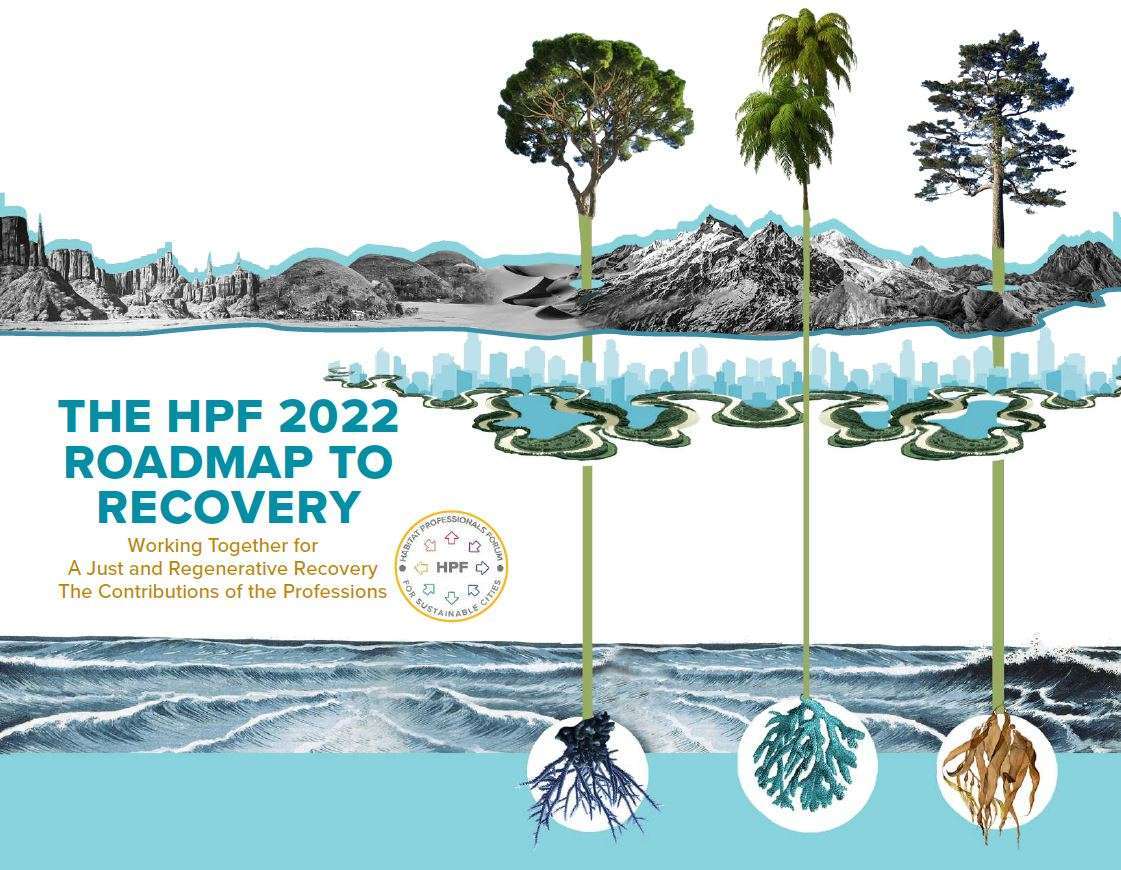
THE HPF 2022 ROADMAP TO RECOVERY
THE HPF 2022 ROADMAP TO RECOVERY
THE HPF 2022 ROADMAP TO RECOVERY
The HPF Roadmap sets out 22 Propositions to change the way we plan and manage our cities and regions, and to make them fit for purpose in the Post-Covid World. If acted upon, these Propositions will help align the separate and disparate actions of government at all levels and link policies to delivery mechanisms. These Propositions are underpinned by the following:
1. A Refreshed Commitment to a Shared Vision The HPF-Roadmap calls for a political re-commitment to the New Urban Agenda (NUA) through a Global Urban Re-Start Campaign to re-engineer existing urban areas to strengthen their resilience to potential future global shocks, adapted to the post-Covid norms, integrate far better with the natural world and climate-friendly.
2. Going Local The HPF-Roadmap calls a Framework of Participatory Democracy to restore local trust in civic governance, and re-empower communities. This requires a renewed set of principles for Urban Social Justice and Human Rights that safeguard the rights of individuals in shaping the future of the communities, and counter the centralisation of powers created by the short-term responses to the pandemic.
3. Establish Tests of Real Progress The HPF-Roadmap calls for the prioritising of Outcomes not Outputs through National Outcomes Frameworks that set out clear meaningful targets for measuring real progress and bridge the current chasm between policy rhetoric and practice, and failure to monitor action.
4. Scale up the Capacity for Action The HPF-Roadmap calls for the creation of professional NUA-Task Forces and linked national and regional UNHabitat Knowledge Hubs harnessing the power of New Technologies: to enhance institutional capacity for effective engagement, service delivery and networking.
Part A: General Propositions Institutional Capacity for Change
• Proposition 1: A Renewed Commitment to the New Urban Agenda.
• Proposition 2: Remedying the Poor Coverage of up-to-date Plans
• Proposition 3: Greater Engagement with Communities in line with an International Framework of Participatory Democracy.
• Proposition 4: Promoting More Effective Strategic Planning through a framework of best practice. Responding to the Spatial Impacts of the Pandemic
• Proposition 5: Progress in Implementing the New Urban Agenda through National Monitoring Reports.
• Proposition 6: Responding to the ‘New PostCovid Norms’ through the review and up-dating of existing urban and territorial plans.
• Proposition 7: Prepare for future Global Shocks, especially in the most vulnerable communities through a Global Urban Re-Start Campaign. Re-tooling Planning Systems
• Proposition 8: Equitable Access to Professional Resources with NUA-taskforces to assist and support those without or lacking resources.
• Proposition 9: Transforming Planning Outcomes: guided by National Outcomes Frameworks.
• Proposition 10: Harnessing the Power of New Technologies through linked national and regional UN-Habitat Knowledge Hubs.
Part B: Thematic Propositions Landscape, Identity and Culture
• Proposition 11: Build Landscape Capacity through the integration of landscape into the work of all built environment professionals.
• Proposition 12: Harness Landscape in the delivery of the NUA through the assessment of long-term and inter-generational impacts of urbanization.
• Proposition 13: Integrate Landscape in Decisionmaking by systematically embedding the landscape dimension in all programmes and policies of compliance procedures.
• Proposition 14: Provide International Leadership through an International Landscape Convention (ILC). Architecture
• Proposition 15: Learn from COVID about the health and wellbeing contribution that urban and regional design and architecture make.
• Proposition 16: Integrate Architecture into the implementation of the NUA.
• Proposition 17: Future-skilling to tackle dysfunctional built environments to make them more resilient, climate-friendly and better integrated with natural systems.
• Proposition 18: Promote the Contribution of Urban Form and Design to Recovery through a NUA Urban & Regional Futures Campaign.
• Proposition 19: Manage Future Megacities through a more strategic collaborative process.
• Proposition 20: Meet the challenge of ‘Goinglocal’ through new metrics of success based upon the health and well-being of communities. Culture and Heritage
• Proposition 21: Secure the Future of our Heritage by promoting its wider value and financial stability. Human Rights and Urban Legislation
• Proposition 22: Refresh Urban Law systems based upon an integrated vision of Social Justice and Human Rights.
• Proposition 22a: Establish a juridical basis for the urban planning of human rights with minimum standards and guarantees of rights.
• Proposition 22b: A vision of Legal Urbanism for confronting future human settlements crises to be, based on the rights to life, health, food, water, access, housing and participation.
• Proposition 22c: A Legal Framework for Urban Social Justice to be adopted and promoted by the UN Habitat and HPF Partners in accord with resolution 45/86 of the UN General Assembly
https://www.urbanagendaplatform.org/resources/hpf-2022-roadmap-recovery
